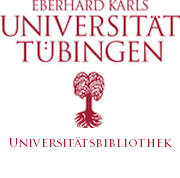Befähigungsgerechtigkeit und Bildung
DOI:
https://doi.org/10.18156/eug-1-2009-art-1Abstract
Der Artikel untersucht den Zusammenhang zwischen Konzepten von Gerechtigkeit, die auf ›Befähigung‹ abheben und dem Bildungskonzept. Die Intuition, dass soziale Gerechtigkeit die Befähigung eines jeden durch Bildung voraussetzt, wird hinsichtlich ihrer Implikationen geprüft. Dabei ergibt sich einerseits, dass Gerechtigkeit nie nur befähigende Bildungsangebote, sondern stets auch beteiligungsoffene soziale Strukturen und die Ermächtigung durch Ressourcen benötigt. Andererseits wird deutlich, dass – gerade aus theo- logischer Perspektive – ein umfassender Bildungsbegriff angezeigt ist, der hinsichtlich unter Gerechtigkeitsaspekten vor allem zu Mindeststandards staatlicher Bildungsangebote beitragen kann.The paper deals with the relationship between justice, capabilities and educational formation (›Bildung‹). Currently, political debates on social justice in Germany and other German-speaking countries are very much centered on the idea, that social justice implies education – by some even to the extent that it implies little else. This idea is discussed, leading to two conclusions: Social justice cannot be achieved by educational means alone, it always needs social structures open for equal participation and empowerment through the politically guided distribution of resources. As a theological perspective makes clear, formation (›Bildung‹) should be understood as a comprehensive, life-long and open process which cannot be targeted to one issue only. This concept of formation may, however, deliver basic standards and criteria aimed at the public educational system.






